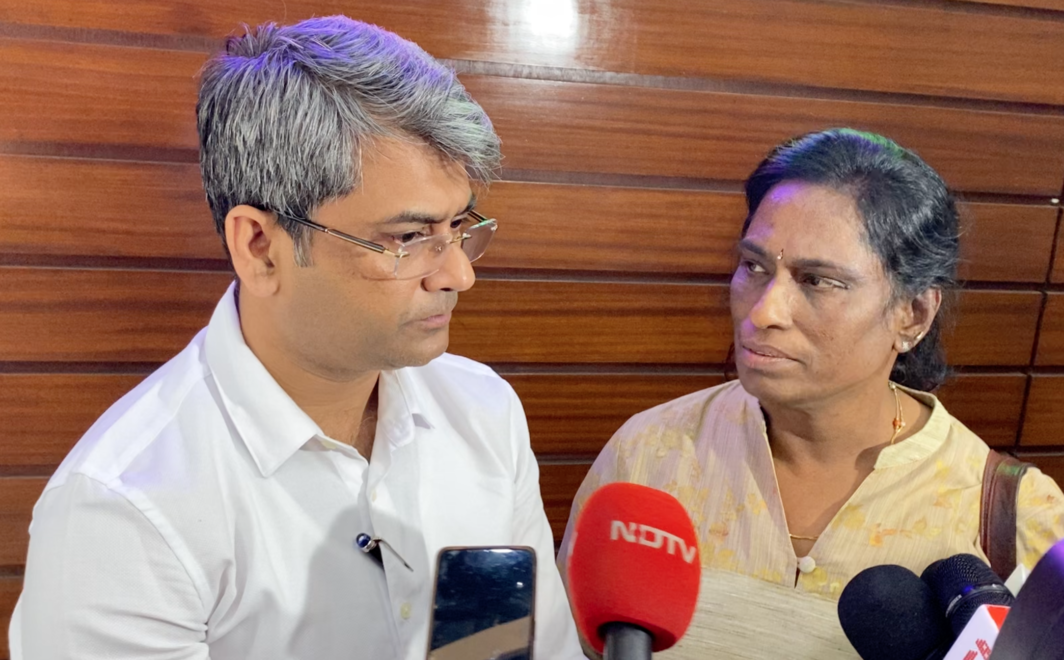There has been sharper and greater focus on the Draft National Sports Governance Bill 2024 than on the Draft National Sports Policy 2024. Both documents have been shared with the public and people at large have been invited to offer suggestions. The Minister for Youth Affairs and Sports Mansukh Mandaviya has made the right moves by meeting stakeholders and seeking feedback.
The first question that arises is if there is a need for such a Sports Governance Bill, given that earlier attempts to introduce such legislation fell by the wayside. If you have followed the developments around sports governance in the country, it would be easy to see that new legislation may actually work in the National Sports Federations’ favour.
It would appear as if the Draft National Sports Governance Bill 2024 is aimed at pulling National Sports Federations out of a tight corner. They have been driven there by a combination of the National Sports Development Code of India, 2011, and its interpretations by the Delhi High Court. This gives Government compelling reasons to push for sports governance legislation.
At the moment, it is the National Sports Code, 2011, which is the be all and end all of sports governance. Anyone who has spent time reading it will agree that it is not really one document that is codified in any sense of the term, but a series of directives that the Ministry of Youth Affairs and Sports (and its earlier avatars) have issued to National Federations.
Infringing autonomy?
Some have argued that the proposed Bill can be seen as an infringement of the autonomy of National Sports Federations. From the 1950s, sports officials have proffered the Olympic Charter as a shield and suggested that attempts to breach that would invoke the wrath of the International Olympic Committee. But that argument may not hold much water anymore.
Interestingly, the IOA’s latest constitution – written by a retired judge of the Supreme Court and approved by the Supreme Court – was approved by the International Olympic Committee before IOA General Body meeting adopted it and paved the way for the elections in December 2022. If the Charter was not violated in 2022, this legislation will also steer clear of the Charter’s toes.
More than anything else, the Government of India (Allocation of Business) Rules 1961, gives the Central Government the power to make rules related to the Indian Olympic Association and the National Sports Federations. Courts have also held that Government is empowered to issue directives to the Indian Olympic Association and National Sports Federations.
Those who are hoping the 2024 Bill will meet the same fate as its predecessors, the Draft National Sports Development Bills, 2011 and 2013, could be mistaken. The first, a National Sports Development Bill 2011 was actually a National Sports Federations Regulation Bill in disguise. It met opposition within the Union Cabinet.
The then Union Minister of State for Youth Affairs and Sports sought to amend the provisions of the Bill but to no avail. The 2013 attempt, scripted by a committee headed by Justice (retd) Mukul Mudgal and including Olympic Games gold medalist Abhinav Bindra and former India hockey captain Viren Rasquinha, was a more comprehensive effort to regulate sports governance. But that also did not go beyond being a draft that went up to the consultative stage.
New elements in present Bill
So, what are the new elements in the 2024 Bill when compared to the National Sports Code 2011?
The proposal to establish a National Sports Regulatory Body of India (SRBI) and an Appellate Sports Tribunal are the two major departures from the National Sports Code 2011 and rules not specified in it but are mandatory in the wake of the Delhi High Court judgements. Let us look at these in some length.
The Ministry of Youth Affairs and Sports, which has the Sports Authority of India as its field arm, is now proposing the National Sports Regulatory Body of India as the body to oversee sports organisations. Instead of bureaucrats assessing the eligibility for recognition of National Sports Federations, it could well be a professional body that takes up that responsibility.
Since the SRBI will be the apex body that monitors and evaluates sports governance across the country, it is critical it is formed by a committee that also includes a representative each from judiciary, financial and civil society. It may not be right to think that National Sports Awards winners are the best suited to be on such a selection committee.
The Appellate Sports Tribunal has become extremely necessary when one looks at the number of writs have been filed in civil courts across the country over the past couple of decades. However, it will be important to have Sports Tribunal at the zonal, if not State levels, to reduce the burden on the Appellate Sports Tribunal in New Delhi.
What can be altered?
There are at least a couple of major alterations that can be considered.
Firstly, since the SRBI would be empowered to grant recognition to IOA, PCI, NSFs, State and District Sports Associations, it must be the only body which registers all sports organisations. Instead of dual registrations with the Registrar of Societies (or Registrar of Companies) and the SRBI, sports organisations across the country should need to register only with SRBI.
Secondly, and perhaps more importantly, the provisions of the legislation must extend to National Sports Promotion Organisations, Sports NGOs and all privately-run leagues in the country. There are many competitions, especially at the school and college level, that are run by organisations that do not have Government recognition and are poorly conducted. They must be subject to the same regulations as National Sports Federations and State Sports Associations.
Thirdly, the Bill ignores the presence of the State Olympic Associations and District Olympic Associations. These are important cogs in the wheel and must be recognised for being the central hubs of sports organisations within their respective regions. The draft Bill mentions Regional Sports Federations rather than State Sports Associations and District Sports Associations.
A few elements must be added to the National Sports Governance Bill 2024 to arm it with teeth to regulate, guide and oversee the entire range of sports governance rather than just IOA, PCI and their affiliated NSFs as well State and District bodies. Many organisations are now involved in training athletes and providing them competitive avenues and must be brought under the SRBI.
For it not to be limited to a National Sports Federation Governance Bill, it is important that it extends to the entire gamut of sports governance. At the moment, its scope is restricted to the Indian Olympic Association, Paralympic Committee of India, National Sports Federations and their affiliates across the country, including in States, Union Territories and districts.
Since it is a legislation aimed to improve governance of sports in the country, it must also include provisions to curb and penalise betting and spot-fixing or match-fixing by those in the sports ecosystem, manipulation of sports results and age-fraud. These have eroded Indian sports and must be addressed. It is also imperative that the mushroom growth of Sports Agents is regulated.



